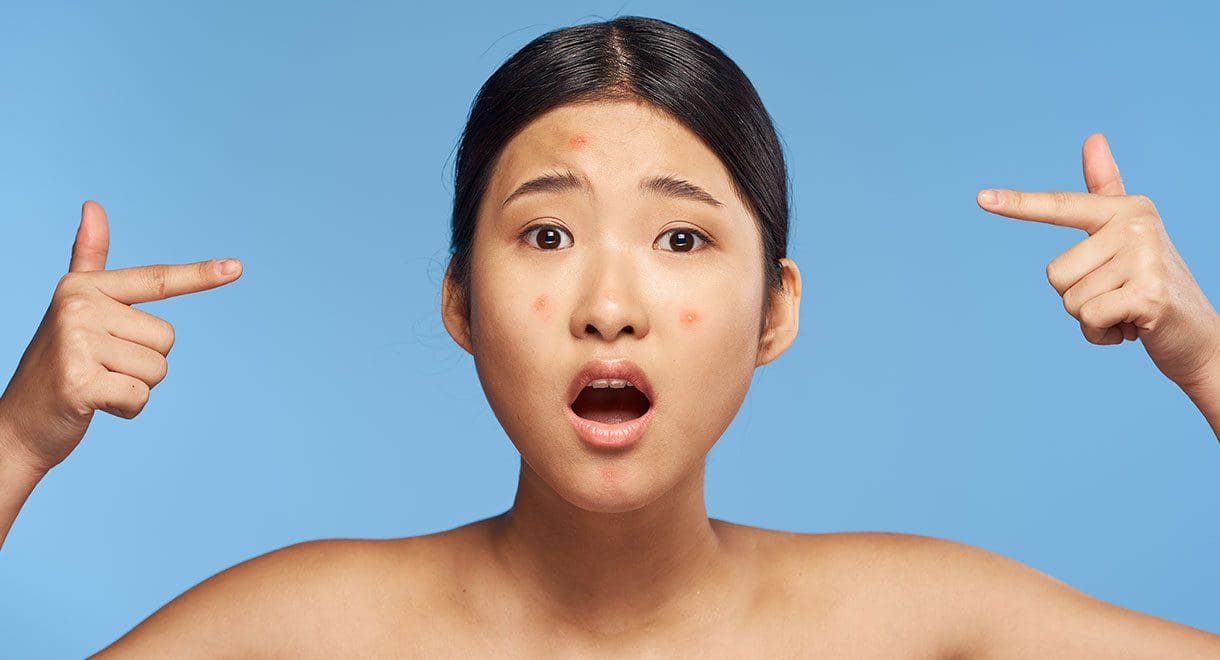Carbs could be harming your skin
By naturopath Margaret Jasinska
Did you know that a high carbohydrate diet can cause or aggravate acne? Each of us has a different carbohydrate tolerance. People who over secrete insulin in response to a carbohydrate-rich meal are more susceptible to developing acne.
Acne is a modern disease. It was simply not present among ancient populations of the world who followed a diet that excluded or minimised sugar and refined grains. In stark contrast, among today’s teenagers acne is generally accepted as normal and actually expected by many people.
Although a lot of people consider acne to be a trivial health condition, it can cause great harm through depression and loss of self esteem. Your skin is the first thing everyone notices about you and people can make harsh judgements based on it.
High glycemic load diets that contain bread, pasta, rice, sugar and foods that contain flour are all common acne triggers. This is because these foods are rapidly digested into sugar in your body and consequently result in a rapid rise in blood sugar. The rise in blood sugar triggers your body to produce insulin and insulin-like growth factor 1 (IGF-1).
These hormones cause your body to produce more male hormones, or increase the sensitivity of your skin to normal levels of male hormones. This encourages pores in the skin to secrete large quantities of sebum. Sebum is a greasy substance that acne promoting bacteria love. IGF-1 also promotes skin cells called keratinocytes to multiply; further encouraging acne. Sugar and high carbohydrate foods also promote enlargement of the sebaceous glands, predisposing a person to suffer with blackheads on their face.
We know that overproducing insulin and IGF-1 can promote weight gain and raise the risk of type 2 diabetes, but many people are not aware of the relationship between these hormones and acne. A low glycemic load diet that focuses on vegetables, protein, healthy fats, nuts and seeds is a safe and effective way to reduce the severity and intensity of acne. The problem is, many of us know that sugar is unhealthy, but we can have an addictive relationship with it. Many people use sugar as a stress coping mechanism. Ensuring your diet contains adequate protein and fat is one of the best ways to reduce cravings and excessive hunger. I recommend my patients consume protein at every meal. Meat, seafood, poultry, eggs and whey protein powder are the richest sources of protein that are easily digested and utilised by the human body. Plant protein is not as easily digested or utilised.
Nutrient deficiencies are commonly present in patients with acne; zinc and vitamin A are the biggest problems. Zinc is plentiful in animal protein, but many young people don’t eat a lot of animal protein, especially women. Hence I see zinc deficiency in my patients’ blood tests regularly. Vitamin A is also necessary for healthy skin and it’s only found in animal foods. Plants such as carrots and pumpkin contain beta carotene which your body is supposed to concert into vitamin A. Many people do not perform that conversion efficiently. It is safest to get your vitamin A from animal foods such as egg yolks, oily fish and liver.









Leave A Comment